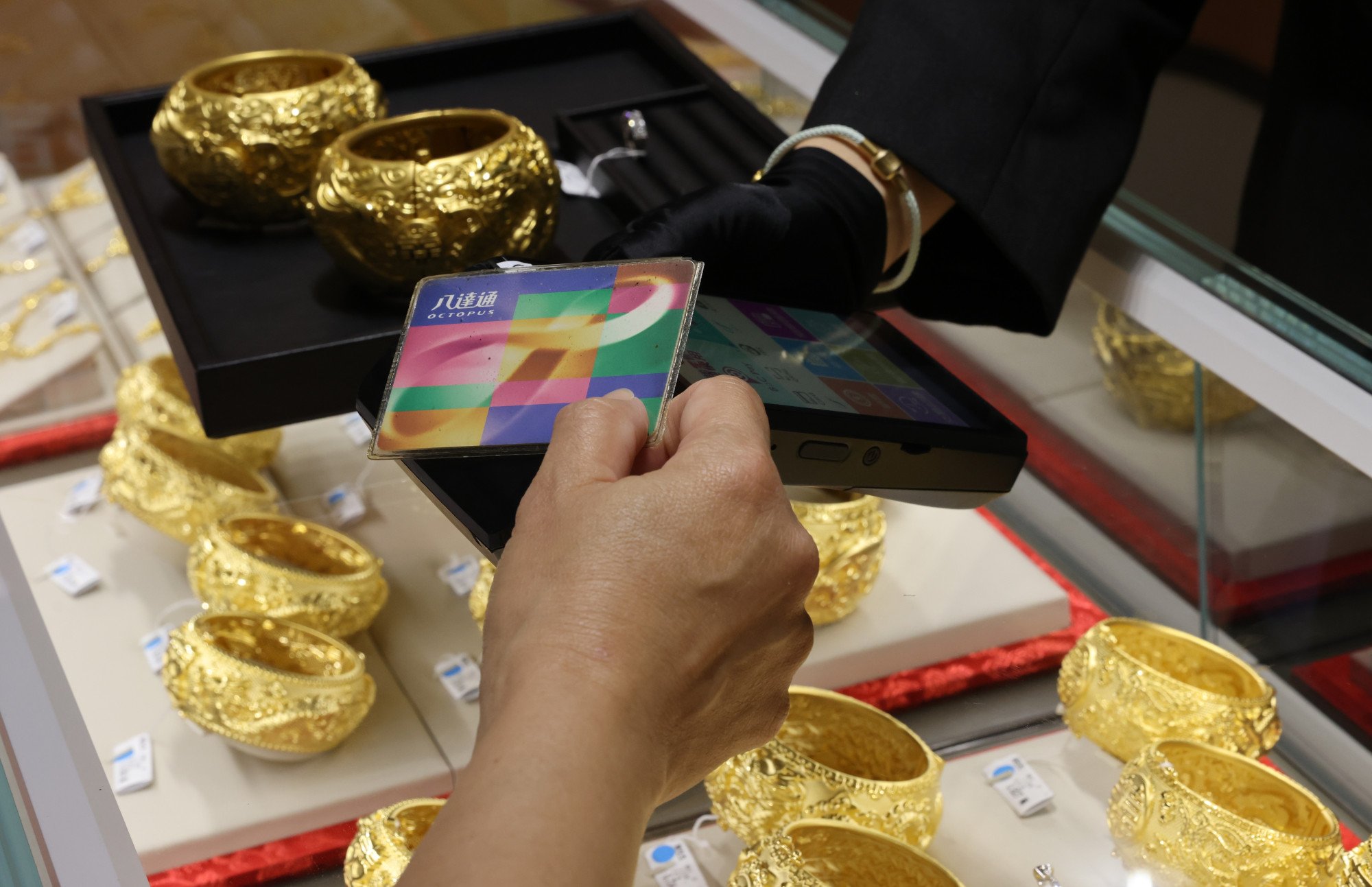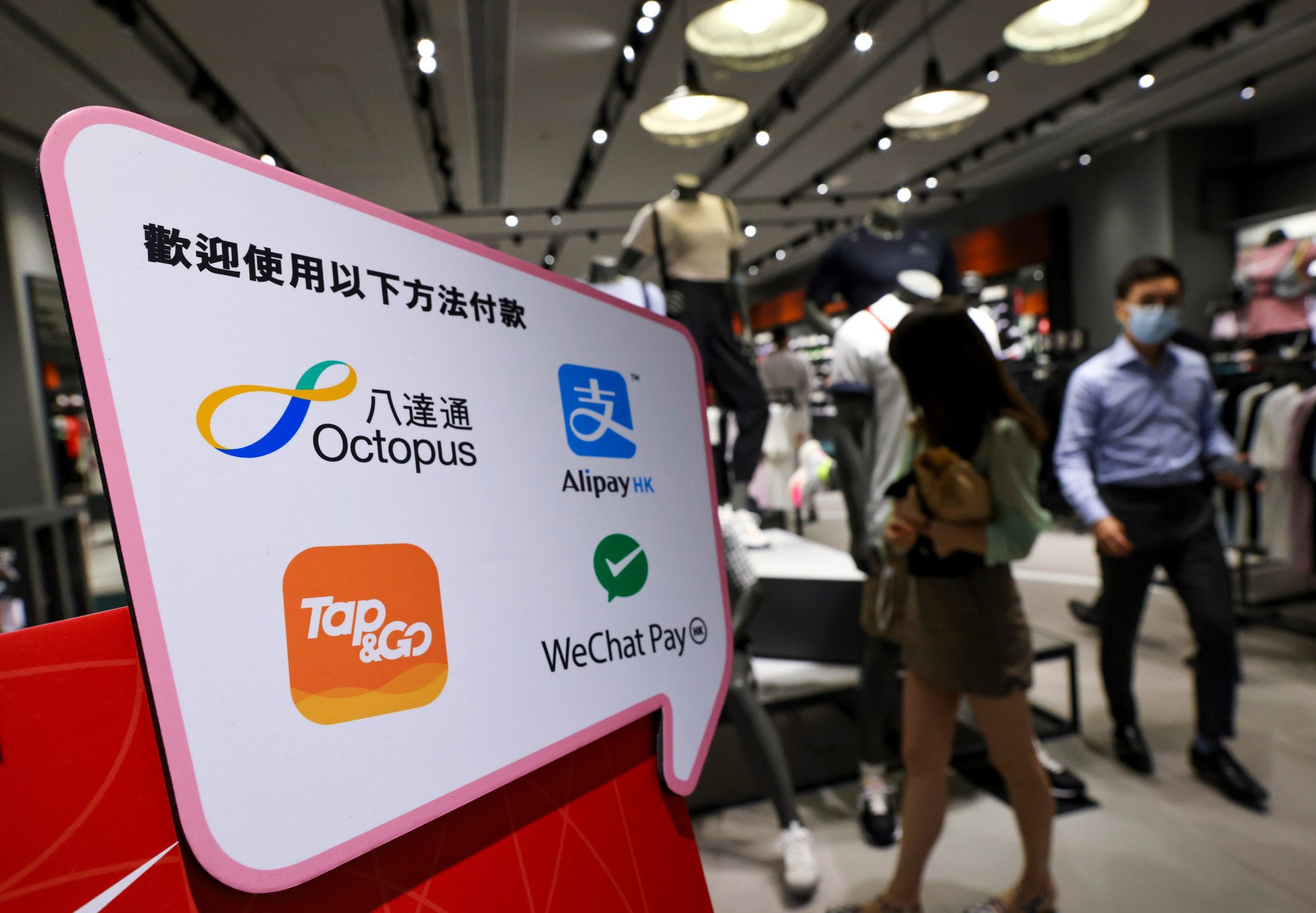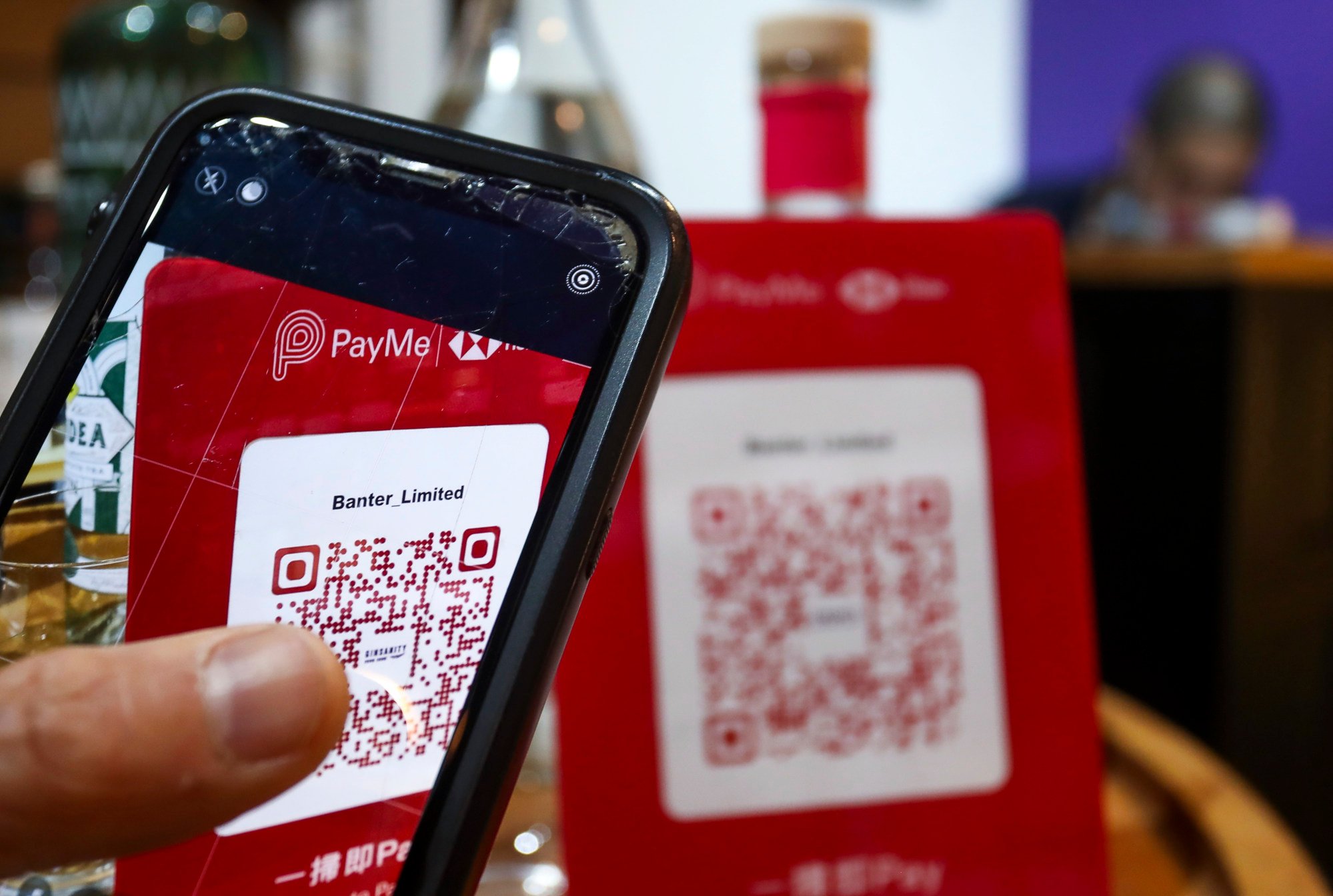Visitors have long grumbled over paucity of payment options, especially compared with mainland China’s widely adopted digital solutions. Some platforms have grown in popularity since pandemic, but merchants complain about relatively high transaction fees for epayment systems, say they prefer cash. — SCMP
Shanghai businesswoman Zhong Zhouyan was caught unprepared when she realised the taxi she entered at Hong Kong International Airport on New Year’s Eve only accepted cash payments.
She took the MTR instead, paying for her train ride to her hotel in North Point using mainland China’s popular epayment platform WeChat Pay.
“I had HK$200 (RM120) on me, but I didn’t expect that taxis would not accept mainland QR wallets that I heard were getting more popular in Hong Kong,” said the 34-year-old online store owner who sells handmade jewellery.
She spent HK$7,000 (RM4,233) over five days on meals, clothes and cosmetics. Although she had no difficulty with epayments at most shopping centres and big restaurant chains, she could not shake off the anxiety that she did not carry enough cash with her.
“Hong Kong is an international financial hub, it’s hard to believe that some eateries, stores and taxis only accept cash,” she said.
Mainlanders, the largest group of visitors before the Covid-19 pandemic, have long complained about Hong Kong’s undying love of cash and the ubiquitous Octopus stored value card.
Visitors vented their frustrations over the lack of choice despite city authorities pushing cashless payments and the proliferation of no fewer than 20 epayment platforms. Hongkongers simply preferred paying with cash, or using credit cards and Octopus cards.
A significant shift occurred during the pandemic, when the government handed out HK$5,000 (RM3,024) consumption vouchers in 2021 for residents to help boost the stricken economy.

The move sparked a surge in usage of four designated epayment platforms – the MTR Corporation’s Octopus card, Hong Kong Telecom’s Tap & Go, Tencent’s WeChat Pay and AlipayHK, a joint venture established by Ant Group, an affiliate of the Alibaba Group which owns the South China Morning Post.
Bank of China’s BoC Pay and HSBC’s PayMe joined the list when two more rounds of e-vouchers went out in 2022 and last year.
Octopus, AlipayHK and WeChat Pay were the most popular platforms as epayment values increased by 14% from HK$218.4bil (RM132.09bil) in 2019 to HK$249bil (RM150.60bil) in 2022, according to a survey last year by Hong Kong-based consultancy Quinlan & Associates.
Mobile payments rose from almost half of all epayments in 2020 to over three-fifths in 2022, according to official data, with younger people preferring the method.
Almost nine in 10 people aged 25 to 34 made mobile payments, whereas only 16.8% of those aged 65 and above did so.
But epayment has yet to take off in Hong Kong also because many small businesses have failed to embrace it.
Experts said the fragmented market with multiple platforms meant relatively high transaction fees for merchants using epayment systems, and the lack of connection between payment tools had hindered the city from developing its ecosystem.
Alvin Lam Chin-cheung, 40, owner of Japanese-style eatery Hirou Tsuki Izakaya in San Po Kong, paid HK$1,800 (RM1,088) in 2021 for a mobile device to accept contactless payments.
Merchants such as Lam are entitled to a rebate if they accumulate HK$290,000 (RM175,406) worth of transactions within two years, but he said he had to give the payment solution firm 1.2% to 1.9% of every transaction.
“My customers use epayments for convenience and loyalty rewards,” Lam said. “Although I usually encourage them to pay cash, I can’t afford to lose customers by not providing other payment options.”
Tsim Sha Tsui boutique owner Jennifer Sham*, 42, said she preferred cash and bank transfer payments to avoid the transaction fees charged by epayment service providers.

“The transaction fee is just a tiny percentage of each transaction, but those small numbers add up and I don’t have much of a profit margin,” she said.
She admitted that she also did not like the idea of her income being tracked.
“Privacy is one of my concerns as I don’t know how long those transaction records will be kept,” she said. “Those records will not allow me to hide anything when it comes to filing my tax returns. I honestly don’t want anyone to know how much I make.”
Ronald Pong, who chairs a committee of the Smart City Consortium, a body helping the government, said Hong Kong’s well-established banking system provided convenient and low-cost cash settlement services, diminishing the benefits for businesses to adopt epayments.

“Hong Kong has a population of only 7.4 million but the market is flooded with over 20 epayment means,” he said.
“The competition means limited profitability for each platform, especially as it relies on merchants’ transaction fees to make money. For merchants, this means increased operating costs that they don’t incur with cash transactions.”
On the mainland, Alipay and WeChat Pay dominate the epayment market by significantly reducing transaction fees for merchants, allowing them to save on administrative costs and reducing the risk of theft from holding excessive cash, he said.
“These advantages have led to the widespread adoption of epayments, driven by the sheer size of the market with a population of 1.4 billion,” Pong added.
In Hong Kong, smaller businesses remain more resistant to epayments.
For example, only 4,392 out of 11,500 public market stalls managed by the Food and Environmental Hygiene Department have implemented epayment systems despite the government offering a subsidy scheme in 2020 and 2021 that gave stallholders a HK$5,000 (RM3,024) grant to adopt at least one contactless payment method.
At the newly renovated Aberdeen Market, epayment systems were available at most stalls. Butcher Lai Yiu-fai, 62, said two-fifths of his transactions were done this way, but he found it inconvenient.
“I have to type in the amount manually on the epayment terminal after I weigh the meat. I sometimes make mistakes and charge less. Cash is just more straightforward,” he said. “Epayment is the trend, but it’s not ideal because of the delayed settlement and transaction fees.”
Shopper Cheung Mei-sheung, 64, a grandmother of two, said she preferred paying by cash or with her Octopus card when she went to the market.
“It’s just an easy habit for me. Reading the screen on my mobile phone is difficult enough, I don’t want the hassle of learning something complicated just to pay,” she said.
Marketing officer Lau Chu-hang, 38, who was also shopping there, said it was easy for younger people to embrace epayments for all their purchases, and those who crossed the border frequently were used to going cashless.

“I like to go to Shenzhen on weekends, and I have no choice but to use QR wallets,” he said. “Last month, when I wanted to pay with cash at a hotpot restaurant, the waitress told me I could, but she did not have change.”
He said his Shenzhen-based colleagues could not live without making epayments for everything from basic necessities to medical and government services.
“In Hong Kong, some people still pay fines for littering and illegal parking by queuing up at post offices,” he said.
City leader John Lee Ka-chiu pledged in his policy address last October that authorities would introduce more than 100 digital-government initiatives from this year and by the third quarter, all government fees would have epayment options using the Faster Payment System.
The Hong Kong Monetary Authority introduced the system in 2018, allowing users to transfer money using proxy identification, such as a mobile phone number or email address.
The Financial Services and the Treasury Bureau said the government would start a pilot scheme to help more small and medium companies in the retail and food and beverage sectors to adopt digital solutions, including epayments.
Nicholas Cheung Man-chun, marketing director of Hong Kong-based payment solution company Yedpay, said the main challenge of popularising epayments was the noticeable slowdown in local spending.
“After a wave of closures due to the impact of the pandemic, many individuals turned to self-employment to earn a living. However, payment companies, which have to adhere to compliance procedures, face a challenge in providing epayment services to those who lack business registration,” he said.
“It is not enough for the business sector to drive epayment, the government needs to take the lead by using it across all services and pave the way for long-term adoption and development.”
Pong of the Smart City Consortium said the dominance of the Octopus card had hindered the development of the city’s epayment ecosystem as its network had not been interoperable with other mobile payment platforms for many years.
He said London’s Oyster card, which was launched in 2003 for public transport, had opened up its networks for other contactless payments since 2014, allowing alignment with the global digital financial landscape and improving convenience for users.
“The government should explore the possibility of letting other payment companies use the wide network of Octopus card readers,” he said.
“If we view these card readers as a public utility and a crucial element of the epayment infrastructure, it would be wise for the authorities to take control of the entire network and make it accessible for all compatible epayment solutions.”
While the city’s railway, franchised buses, minibuses and trams have gradually allowed passengers to pay with credit cards and QR ewallets over the past year, Octopus remained the most popular with more than 20 million cards in circulation.
The Octopus card, one of the world’s earliest contactless payment systems, was introduced in 1997, a year after South Korea’s Upass. The card is now accepted at more than 180,000 sales points, handling 15 million transactions worth HK$300mil (RM181.45mil) every day.
In a recent move, Octopus announced that it would open its payment networks for the first time to UnionPay, Alipay and AlipayHK from Thursday. It would be available only on taxis with its Bluetooth-enabled card readers, but the company said it was open to working with other payment platforms.
Gary Ng Cheuk-yan, a senior economist at Natixis Corporate and Investment Bank, said the dominance of Octopus cards reflected local consumer choice, but the situation posed challenges for visitors who preferred epayments, especially mainlanders.
“It will be sensible to offer more payment options to cater to the largest group of visitors in Hong Kong,” Ng said.

Emil Chan Ka-ho, co-chair of the Hong Kong Digital Finance Association, said Octopus and the banking system had vested interests in the existing epayment landscape, and that made them less proactive in pushing epayment development.
“The Hong Kong government, being a major shareholder of the MTR and Octopus, has been acting slowly, and the promotion of cross-border payment arrangements with other countries has also been slow,” he said.
Since last month, users of the city’s Faster Payment System have been able to shop at eight million merchants in Thailand, but only 50,000 Hong Kong merchants accept QR code payments from those using the Thai counterpart, PromptPay.
The link was part of an agreement between the Monetary Authority and the Bank of Thailand.
“We are totally lagging behind other Asian countries,” said Chan, an adjunct professor at City University. “The Bank of Thailand initiated bilateral QR-code-based cross-border payment services with Japan, Cambodia, Vietnam, Malaysia, Indonesia and Singapore in 2018 to drive the development of the tourism industry.”
Rather than adding on devices to improve compatibility among different epayment tools, he suggested that an official digital currency that enabled peer-to-peer transactions without clearing could be a game changer.
The Monetary Authority began an e-HK dollar pilot scheme last year involving 16 firms from the financial, payment and technology sectors mainly to test potential domestic and retail uses.
No decision has been made yet on its wider use.
“The key feature of the e-HKD is its programmability, allowing it to seamlessly integrate with various epayment platforms and facilitate interoperability on a retail level, as well as creating different scenarios like disbursing subsidies to residents or paying public services,” Chan said.
“Also, e-HKD holds strategic value as it can connect with the mainland’s digital yuan initiative and integrate with different international payment platforms, thereby solidifying Hong Kong’s leading position as a financial centre.” – South China Morning Post





